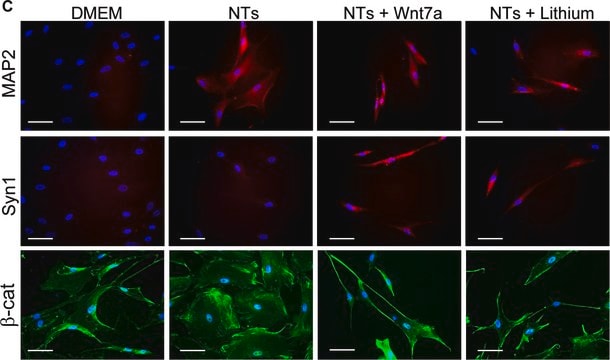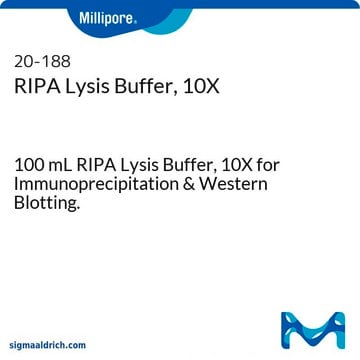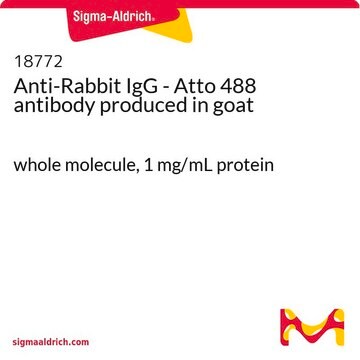S193
Anti-Synapsin I antibody produced in rabbit
affinity isolated antibody, lyophilized powder
Synonyme(s) :
Anti-EPILX, Anti-MRX50, Anti-SYN1a, Anti-SYN1b, Anti-SYNI
About This Item
Produits recommandés
Source biologique
rabbit
Niveau de qualité
Conjugué
unconjugated
Forme d'anticorps
affinity isolated antibody
Type de produit anticorps
primary antibodies
Clone
polyclonal
Forme
lyophilized powder
Poids mol.
antigen ~80 kDa (Synapsin Ia)
Espèces réactives
rat, mouse, human, bovine
Technique(s)
dot blot: 1:1000
immunohistochemistry (frozen sections): 1:2000
immunoprecipitation (IP): 1 μg
indirect immunofluorescence: 1:2000
western blot: 1:1000
Numéro d'accès UniProt
Température de stockage
−20°C
Modification post-traductionnelle de la cible
unmodified
Informations sur le gène
human ... SYN1(6853)
mouse ... Syn1(20964)
rat ... Syn1(24949)
Description générale
Immunogène
Application
- Western Blotting (1 paper)
- immunohistochemistry
- immunoblotting
- immunoprecipitation
- ELISA.
Rabbit polyclonal anti-Synapsin I antibody can be used for the localization and detection of synapsin I (synapsins Ia and Ib, approximately 80 kDa and 77 kDa, are collectively referred to as synapsin I) in nerve terminals.
Actions biochimiques/physiologiques
Forme physique
Clause de non-responsabilité
Vous ne trouvez pas le bon produit ?
Essayez notre Outil de sélection de produits.
Code de la classe de stockage
13 - Non Combustible Solids
Classe de danger pour l'eau (WGK)
WGK 2
Point d'éclair (°F)
Not applicable
Point d'éclair (°C)
Not applicable
Équipement de protection individuelle
Eyeshields, Gloves, type N95 (US)
Certificats d'analyse (COA)
Recherchez un Certificats d'analyse (COA) en saisissant le numéro de lot du produit. Les numéros de lot figurent sur l'étiquette du produit après les mots "Lot" ou "Batch".
Déjà en possession de ce produit ?
Retrouvez la documentation relative aux produits que vous avez récemment achetés dans la Bibliothèque de documents.
Les clients ont également consulté
Notre équipe de scientifiques dispose d'une expérience dans tous les secteurs de la recherche, notamment en sciences de la vie, science des matériaux, synthèse chimique, chromatographie, analyse et dans de nombreux autres domaines..
Contacter notre Service technique













